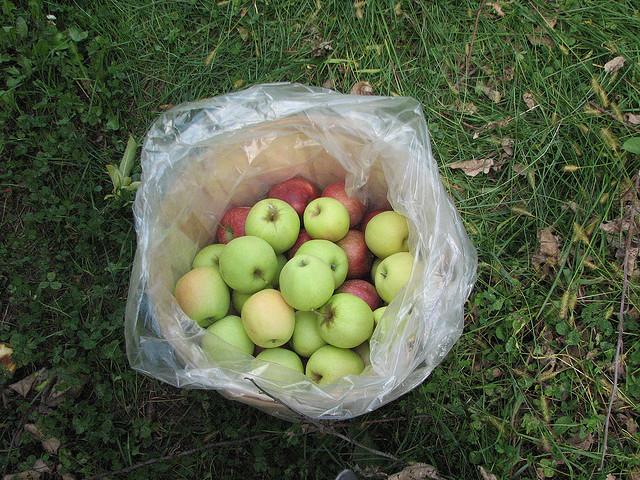
Under our mother’s dictatorship, we had one liberty. Each market day, she bought a crate of Golden Delicious apples and tipped the Swiss vendor to lug it up the three steep flights of stairs that led to our immigrant’s cramped apartment. The full crate barely fit on the bottom shelf of our small pantry, where it sat for us all month. These apples were our only snack, but we could eat of them without restriction.
Those at the top, which tasted crisp and fresh, smelled of sunny, open fields; so that for the first two weeks, every time I opened the pantry door, a scent of freedom and light rose to greet me. But by the end of the month, the only remaining apples were those at the bottom. Soft and mushy, they tasted like the dried chestnuts I used to buy in Galicia, at a little kiosk in the public park near my grandmother’s house. I learned to like their yielding, comforting flesh in spite of their smell of confinement and darkness.
One day, when the last few apples had turned soft and wrinkled and the open fields’ aroma had been replaced with that of a musty and gentle decay, I decided to bake my first apple pie. There were no recipe books at my house. Not many utensils, either. A fork, a spoon, and a paring knife took on the roles of spatula, vegetable-peeler, and serving utensils. The pie turned out rather dry in spite of its congealed filling, but the crust was flaky and delicious and my brother and sisters liked it. So from then on, for an extra treat at the end of the month, I prepared my own version of an apple pie.
Yesterday, the sight of the sunny apples in the produce section of the supermarket in rural Iowa brought it all back. There they were: all in a row, all different kinds, all different colors, but it was the Golden Delicious apples that captured my eye. I felt myself staring at them. Much like an old friend one hasn’t seen in years, they looked familiar but different, not quite the way I remembered them. On impulse, I picked one. Beneath the waxy gloss I found only a refrigerated trace of open fields, but it was enough. When I found myself steering my cart to the baking ingredients aisle, I knew exactly what to buy.
Eva Roa White’s fiction and non-fiction have been published in Page 47 Online Anthology, Transnational Literature, disClosure, Natural Bridge, and Marco Polo.




